The Taliban group announced a new government in Kabul, 20 years after it was removed from power by the United States after the September 11, 2001 attacks.
The last time they were in control, the Taliban were treated as an international pariah. The economy got so bad that in 2001 there was no money to buy fuel. The few cars that were left were forced off the road.
Most people had no money for generators and power cuts were widespread. The streets were dark and silent at night, and during the day most people preferred to stay indoors as much as they could, out of fear of Taliban vigilante gangs.
It is still unclear what the Taliban government will be like, its economic and social policies, nor which factions have taken over. However, based on historical precedents and the events of recent months that brought the Taliban to power, some predictions about the future of Afghanistan and the region in general can be made.
The Taliban went from taking control of their first major city to reaching the gates of Kabul in just 10 days.
But the capital, it was assumed, would be different. Most observers believed that Kabul would hold out until a negotiated deal could be reached. On Sunday, August 15th, everything changed. Within hours, the president and his top officials fled. What was left of the Afghan army and police forces changed uniforms and went into hiding.
The country with the closest relationship with the Taliban is China, which shows no sign of embarrassment. With so many ordinary Afghans trying to flee their country, their economy seems certain to collapse, as it did when the Taliban were last in power from 1996 to 2001. So Chinese economic support will be needed to keep Afghanistan afloat, and this gives Beijing a considerable degree of control over Taliban policy.
We can also be sure that the Taliban will not challenge China on embarrassing issues like the treatment of its Muslim and Uighur population.
It also disrupted India’s policy. India injected large amounts of money and knowledge into Afghanistan and had good influence with the governments of Hamid Karzai and Ashraf Ghani – both wanted India as a counterbalance to Pakistan. This is all over now.
- Internal conflicts between different Taliban factions could shake your government
There are already reports of internal conflicts between Taliban members. Days after the formation of the new Taliban government in Afghanistan, there are allegations that infighting occurred within the extremist group, the BBC reported.
The report said Deputy Prime Minister Mullah Abdul Ghani Baradar and Khalil-ur-Rahman Haqqani, minister and senior leader of the Haqqani Network, were involved in a “major fight” over power sharing.
Apparently, the dispute mainly centered on who did the most to secure the Taliban’s military victory, the diplomacy of their leaders in Qatar, or the military strength of other members inside Afghanistan.
As such, Taliban political office leaders would be opposing a broader role for the Haqqani Network, a US-designated terrorist organization, and how power was divided in the new cabinet.
- Afghanistan could even suffer a civil war between different factions
If these disputes for political power are linked to verbal bickering in cabinets, further bloodshed can be avoided.
However, with the large amount of weapons scattered throughout the country, the many factions of the Taliban, independent “warlords”, and even an armed resistance in the mountains of the Panjshir Valley, could lead Afghanistan into civil war and de facto division of the country with different regions being governed by different and opposing groups.
- Afghanistan will become a country with 2 systems: one more theocratic and one more modern
If a civil war and a division of the country do not happen, the country can also be socially and culturally split in two: the cities of Kabul and Mazar-i-Sharif being governed as more modern cities, and the rest of the country as more conservative theocracies.
The capital Kabul has more than 4 million inhabitants and the vast majority of its population was born after the fall of the Taliban in 2001. In other words, this large young population has never lived under Taliban rule and is used to a more modern style and “ Western” of life.
The same goes for Mazar-i-Sharif, the largest city in the north of the country, and the former capital of the Northern Alliance, the enemy military group of the Taliban in the 1990s. This is why Mazar-i-Sharif has always been a more open city , which avoided being destroyed during the civil war. As such, it has been one of the most prosperous over the past 20 years and its population would have difficulty accepting an extremely conservative government religiously speaking.
As for the rest of the country, its history and culture is much more associated with a conservative ideology and will likely adapt better to the Taliban’s system of laws and customs.
- In some parts of the country, the Taliban government will not be much more autocratic than that of Saudi Arabia, for example.
Much has been said about how conservative, autocratic and backward the Taliban government can be. However, it is important to put these assessments in perspective. Saudi Arabia, one of the richest and “respected” countries in the world, which is part of the G20, and to which the world’s greatest powers sell billions of dollars worth of weapons every year, has similar characteristics of its government. much to the Taliban. However, it does not receive nearly the same level of criticism.
For example, Saudi Arabia still uses public beheading as a form of punishment for more serious crimes, including crucifixion.
The vast majority of women in Saudi Arabia still permanently wear the burqa, clothing that covers the entire body and face, as everyday clothing. In fact, until June 2018, it was illegal for women to drive in Saudi Arabia.
Turkmenistan, which borders Afghanistan, is known as the North Korea of Central Asia with one of the most autocratic governments in the world. However, as a major natural gas exporter, it receives little negative media attention.
All this to show that, despite the Taliban regime being extremely conservative and against most human rights, they are not unique in the world and many countries with similar traditions do not receive the same criticism.
- Taliban leadership part has experienced luxury and recognition, and will want more
Part of the Taliban leadership spent a lot of time living in Qatar and negotiating with the international community for a peace agreement. During their stay in Qatar, one of the richest countries in the world per capita, these leaders live in luxurious hotels, eating the best and the best.
Once someone experiences luxury and power in the form of international recognition, it is difficult to adapt again to living in caves without electricity, sewage, running water, good food and other “luxuries” of modern society.
Therefore, this part of the Taliban leadership will want to continue to have these perks and for that, it will have to have a good relationship with the international community to keep Afghanistan’s economy afloat, receiving investment, and humanitarian aid for that.
Furthermore, they will have to be less talkative in their sermons to justify so much luxury and ostentation while Taliban “troops” outside the big cities still live in mud houses without electricity and running water. This reinforces the prediction in item 3.
- The Taliban will need international help to keep the country’s economy stable
Reinforcing the previous item, the Taliban will need international assistance for the economy of Afghanistan not to collapse since a large part of this economy was supported by international aid in the form of investments in infrastructure, food, medicine, and support for institutional reforms.
To keep these aid faucets open, the Taliban will have to “behave” and be less autocratic and rigid than it was in the past.
- United States, United Kingdom, France and the “West” will lose influence in the region
Even with this need for international support, the “West” will lose a lot of influence in Afghanistan and the region as a whole. Without nearby military bases, large investments in the country, and commercial flow, the United States, United Kingdom, France (and the European Union as a whole) will lose power and prestige in the region.
- But the United States still has “weapons” to influence the Taliban government
However, the United States still has a card up its sleeve to influence Taliban behavior: billions of dollars from the former government of Kabul “frozen” in American banks. And that money will only be released if the new Taliban regime does not go against US interests in the region… including guaranteeing the safe exit of the country for American citizens who want it.
- The lines of the global strategic balance were redrawn
But even with that card up your sleeve, it is indisputable that the global strategic balance has tipped to the Chinese/Russian side and out to the American/Western side.
As mentioned in item 7, and with the exception of the previous item, the United States has few levers to influence the future of Afghanistan and the region in general.
However, the biggest “winners” of the American exit from Afghanistan were China, which borders the country and already invests in the extraction of natural resources in Afghanistan, and Russia, which has great influence in neighboring countries as they were part of the Union together Soviet.
In addition, some analysts noted that the Americans’ abandonment of Afghanistan could send negative signals to Taiwan, which relies on the American military guarantee to guarantee its independence from mainland China.
Even while the embassies of the United States, the United Kingdom, France, and the European Union representation were evacuating their employees, the Chinese and Russians kept their offices functioning in Kabul, a demonstration that the latter feel much more comfortable in a Taliban government .
- China will be the main supplier of this international aid
The country with the closest relationship with the Taliban is China, which shows no sign of embarrassment about it. With so many ordinary Afghans trying to flee their country, their economy looks set to collapse, as it did when the Taliban were last in power, from 1996 to 2001.
Therefore, Chinese economic support will be needed to keep Afghanistan afloat, and that will give Beijing a considerable degree of control over Taliban policy.
For example, even before the Taliban took power in Afghanistan, senior members of the Chinese government were already meeting members of the Taliban leadership, as in the meeting between Chinese State Councilor and Foreign Minister Wang Yi and Mullah Abdul Ghani Baradar, political chief of the Taliban of Afghanistan, in Tianjin, China in July 2021.
- China will gain importance in the Taliban government, adding the country to the Sino-Pakistani corridor
The transport and energy corridor between China and Pakistan CPEC – “China-Pakistan Economic Corridor” is as a whole one of the biggest parts of China’s gigantic global infrastructure project, the BRI – “Belt and Road project” or “Initiative of the Belt and Route.”
With Afghanistan’s physical proximity to China and Pakistan, it will likely be included in the CPEC corridor to include new routes to it and also secure the natural resources needed to complete the corridor, including minerals and water.
- Qatar and Turkey gain influence in the region
Qatar was the country that was most strengthened by the chaos in Afghanistan. Its diplomatic alignment with the Taliban since 2013 has paid dividends. Qatar allowed the Taliban to open the group’s main international office on its territory in 2013 and provided the venue for peace talks that led to the US withdrawal agreement.
This “patient diplomatic facilitation” was a classic means for a small state to elevate its international relevance.
In the weeks since the militants took power, more than 58,000 of the 124,000 Western and at-risk Afghan citizens who were flown out of Afghanistan have flown through Qatar, which facilitated their withdrawals with the Taliban.
And also Qatar, along with Turkey, sent technicians to reopen the civilian airport in Kabul, further increasing their influence in the new Afghan government.
- Russia will be forced to work with the Taliban to protect its OTSC – Collective Security Treaty Organization allies
Russia was yet another country that kept its embassy open in Kabul. Even with its complicated history in Afghanistan due to the Soviet invasion and occupation during the 1980s, Russia is maintaining good relationships with the Taliban.
One of the reasons Moscow wants to maintain a productive diplomatic relationship with the Taliban is the fear of an expansion of armed Islamism in countries bordering Afghanistan like Tajikistan, and Uzbekistan.
The problem is that Russia has a mutual defense agreement with Tajikistan because they are both part of the OTSC. Uzbekistan, on the other hand, is part of the Commonwealth of Independent States – CIS, formed by the majority of former Soviet republics.
- India’s strategy of isolating Pakistan with the help of Afghanistan has failed
Along with the United States, India has spent the last 20 years trying to promote a democratic system in Afghanistan. India has invested more than $3 billion in building Afghan roads, bridges, schools and clinics.
But the shift in power in Kabul almost certainly means the painful loss of a partner democracy in a largely hostile region with its arch-rivals Pakistan and China growing stronger.
India’s biggest fear is that Afghanistan will become a haven for Pakistani militants. India and Pakistan are neighbors with nuclear weapons and nemesis that have fought many wars. Pakistan has long-standing ties to the Taliban and has long provided refuge to militants who attacked India.
- The United States will not make military interventions and “nation building” in the short and medium term
In the short and medium term, the US avoided “nation-building” projects abroad, so-called “nation-building.” These international policies aim to build or structure a national identity using the power of the state itself or by an external “sponsor” such as another country, the United Nations, international development banks, among others.
In the case here, it was the United States trying to build an Afghanistan to unify people within the state so that it remains politically stable and viable in the long run.
But after putting trillions into rebuilding Afghanistan, and even making progress in several areas, the end result was far from what was expected.
As such, the American public will not have the stomach in the short term to spend “blood and treasure” trying to rebuild another country, unless it is vitally important to US national security.
- But the United States will certainly intervene in the case of national security (expansion of Communism/China, terrorism on American soil, ensuring energy security)
Even with an American public totally averse to military intervention at the moment, its historical memory is short and the government’s propaganda machine is very strong.
That is, in case a major external aggression against the US or Washington has its interests seriously affected abroad – it threatens energy security or the expansion of communism in the neighborhood, the ghost of Afghanistan will be quickly forgotten and the US returned to intervene militarily in the outside. After all, it’s no accident that the United States still maintains a military budget larger than the defense budget of the next 11 largest countries combined.
That being said, any talk that US military might is declining after the fiasco in Afghanistan is an illusion. The same was said of the US after the fall of Saigon in South Vietnam and we all have the answer.


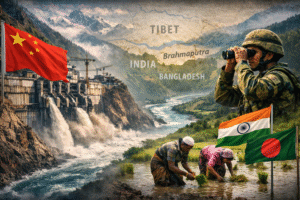
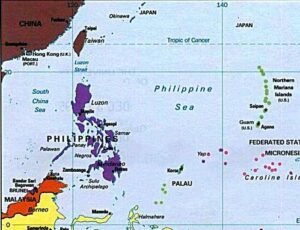
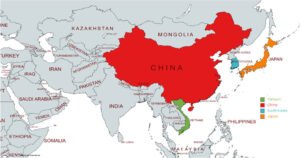
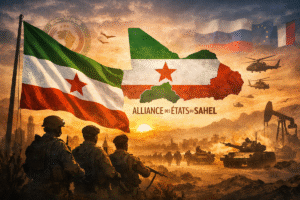


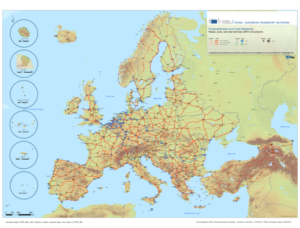



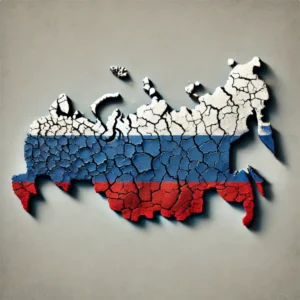
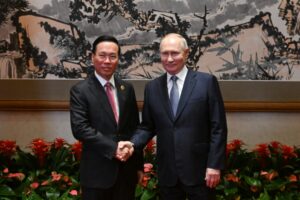
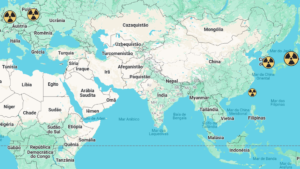
[…] partly supported the United States in its “War on Terror,” mainly in the Afghanistan but also in other conflicts as in Libya. However, these participations in different conflicts was […]
[…] After the end of the conflicts in Afghanistan and Iraq, there was a decline in the US presence in the Middle East, which allowed this growth of Chinese influence. This aggrandizement threatens US, Israeli and EU socio-political relations with the region, especially in the peaceful withdrawal of US troops in Afghanistan. […]